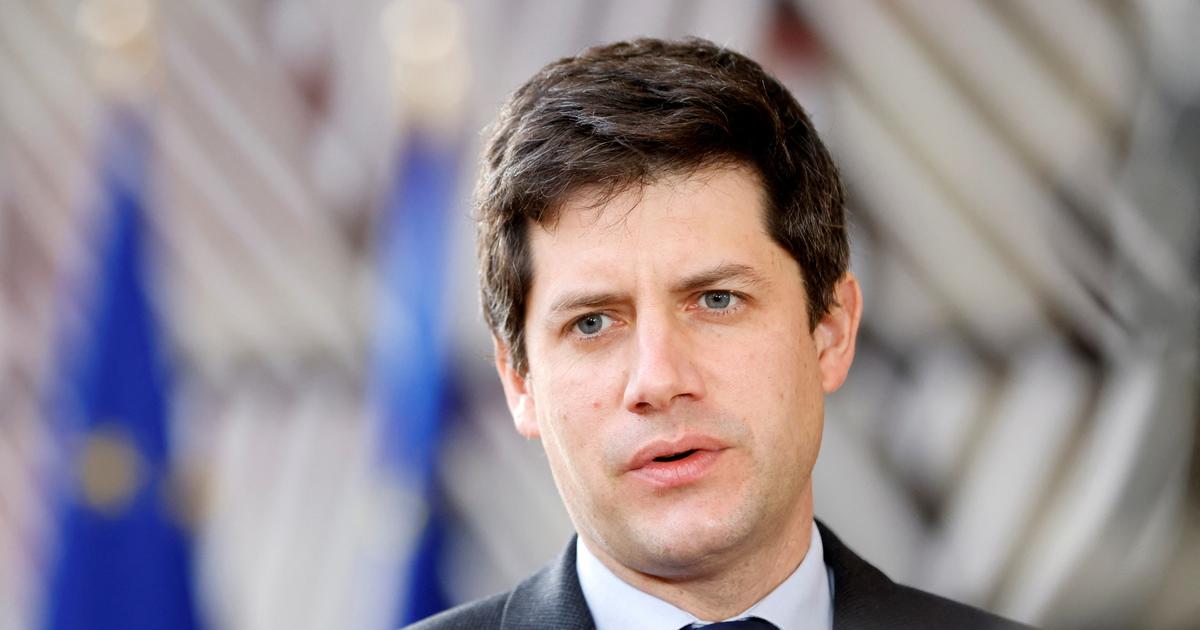Reduction of fallow land, financial aid, revision of crop greening objectives: faced with the shock of the Ukrainian conflict on agricultural markets, the Twenty-Seven are seeking to boost their production to strengthen food security in the EU and respond to the risk of shortages other regions of the world.
While the invasion of Ukraine by Russia, two major cereal exporters, has propelled the prices of oils, wheat, soybeans, rapeseed and corn to record highs and caused the prices of fuel and fertilizers to soar, Europeans strive to support their farmers.
But above all, the EU is seeking to boost its production, both to compensate for the drop in its animal feed supplies (more than half of its maize imports came from Ukraine) and to alleviate the feared serious food crises, particularly in Africa and in Asia.
Read alsoUkraine: 26 organizations denounce the pressures of “productivist” agriculture
“
War will lead tomorrow to the risk of famine
,” French Foreign Minister Jean-Yves Le Drian said on Monday.
The EU must therefore "
assume its nurturing role
", insisted his colleague in Agriculture Julien Denormandie, before a meeting Monday in Brussels with his European counterparts.
Before the presentation on Wednesday of its
agri-food strategy "
roadmap ", the European Commission submitted several proposals on Monday, including support for private storage in the pig sector and the use of the "
crisis reserve
", a fund of 450 million euros planned to help farmers in the event of price instability.
A “
framework agreement
” would allow States to provide additional aid.
There must be “
sufficient flexibility for each country to establish tailor-made plans according to its needs
”, argued Finnish Minister Jari Leppa.
Above all, the European executive wants to temporarily relax its drastic rules on fallow land.
According to the new Common Agricultural Policy (CAP), which will come into force in January 2023, farms of more than 10 hectares had to leave at least 4% of the land uncultivated to encourage biodiversity.
“
In the coming months and beyond, we must anticipate global shortages.
The Commission's proposal would allow 4 million hectares to be
brought back into cultivation in the EU,” observed Austrian Minister Elisabeth Köstinger.
"
Access issue
"
Finally, the States are asking the Commission to reassess their strategic plans accordingly, which decline the future CAP at national level, at a time when some farmers are already preparing their crop rotations for 2023 - "
a matter of common sense
" according to Julien Denormandie .
“
The CAP was established to guarantee predictability and food security for Europeans, this must remain the priority
”, agrees his Spanish counterpart Luis Planas Puchades.
Austria pleads for an acceleration of a "
vegetable protein plan
" also promoted by Paris to reduce imports of soybeans and corn from the continent.
“
There is room to make the agricultural sector more resilient.
But I don't believe that contributions to (greening) strategies should be abandoned and weakened
,” Agriculture Commissioner Janusz Wojciechowski replied on Monday.
Some states are demanding a review of the European "
From farm to fork
" strategy, which aims, by 2030, to halve the use of pesticides, 20% of fertilizers, and to devote a quarter of the land to organic, which would result according to several studies - criticized by Brussels - by a drop in yields.
“
This strategy was based on a pre-war world in Ukraine.
Its objectives must be reviewed, under no circumstances can Europe afford to produce less
“, French President Emmanuel Macron insisted last week.
Read alsoFuel prices: transporters, farmers, fishermen and taxis are mobilizing throughout France
In unison with environmental NGOs, the Commission considers, on the contrary, that the planned reduction in pesticides and fertilizers (the potash of which comes mainly from Russia and Belarus) will make it possible to strengthen European independence, to revitalize the soil, and therefore to consolidate food security on the continent.
"
In the short term, there is no wheat supply problem (at the global level), but a concern for access for the most vulnerable populations
", for whom the market price becomes inaccessible, recalls the NGO Oxfam, which defends the EU's green strategy and agriculture based on “
local and small-scale
” production.
SEE ALSO -
Fuels: farmers and road hauliers block the Feyzin refinery

